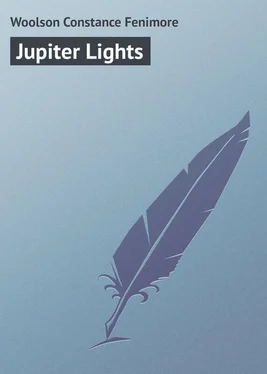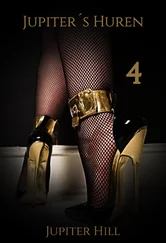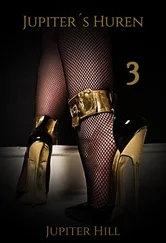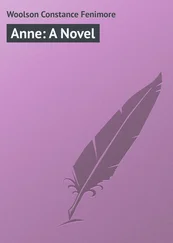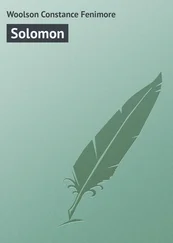Constance Woolson - Jupiter Lights
Здесь есть возможность читать онлайн «Constance Woolson - Jupiter Lights» — ознакомительный отрывок электронной книги совершенно бесплатно, а после прочтения отрывка купить полную версию. В некоторых случаях можно слушать аудио, скачать через торрент в формате fb2 и присутствует краткое содержание. Жанр: foreign_prose, на английском языке. Описание произведения, (предисловие) а так же отзывы посетителей доступны на портале библиотеки ЛибКат.
- Название:Jupiter Lights
- Автор:
- Жанр:
- Год:неизвестен
- ISBN:нет данных
- Рейтинг книги:4 / 5. Голосов: 1
-
Избранное:Добавить в избранное
- Отзывы:
-
Ваша оценка:
- 80
- 1
- 2
- 3
- 4
- 5
Jupiter Lights: краткое содержание, описание и аннотация
Предлагаем к чтению аннотацию, описание, краткое содержание или предисловие (зависит от того, что написал сам автор книги «Jupiter Lights»). Если вы не нашли необходимую информацию о книге — напишите в комментариях, мы постараемся отыскать её.
Jupiter Lights — читать онлайн ознакомительный отрывок
Ниже представлен текст книги, разбитый по страницам. Система сохранения места последней прочитанной страницы, позволяет с удобством читать онлайн бесплатно книгу «Jupiter Lights», без необходимости каждый раз заново искать на чём Вы остановились. Поставьте закладку, и сможете в любой момент перейти на страницу, на которой закончили чтение.
Интервал:
Закладка:
Constance Fenimore Woolson
Jupiter Lights
I
“IT’S extraordinary navigation, certainly,” said Miss Bruce.
“Oh, mem, if you please, isn’t it better than the hother?” answered Meadows, respectfully.
Meadows was Miss Bruce’s maid; one could have told that she was English (even if one had not heard her speak) from her fresh, rosy complexion, her smooth hair put plainly and primly back from her forehead, her stiff-backed figure with its elbows out, and her large, thick-soled boots.
“I don’t mind being ’umped-up on the bank, miss, if you please,” she went on in her sweet voice, dropping her h’s (and adding them, too) in unexpected places. “It’s those great waves we ’ad last week, mem, if you please, that seemed so horful.”
“I am sorry you will have to see them again so soon,” Miss Bruce answered, kindly.
For Meadows was to return to England immediately; she was accompanying the American lady for the journey only. Miss Bruce was not rich; in her own land she did not intend to give herself the luxury of a lady’s-maid – an indulgence more unusual in the great Republic (at least the northern half of it) than fine clothes, finer houses, or the finest diamonds.
The little steamboat which carried these travellers was aground in a green plain, a grassy, reedy prairie, which extended unbroken as far as the eye could reach on all sides save one; here there was, at some distance, a bank or shore of dark land, dark in comparison with the green. Beyond this shore – and one could easily see over it – stretched the sea, “the real sea,” as Miss Bruce called it, “and not all this grass!” It was this remark of hers which had drawn out the protest of poor Meadows.
Miss Bruce had crossed from England to New York; she had then journeyed southward, also by sea, to Savannah, and from that leafy town, as fair as is its name, she had continued her voyage in this little boat, the Altamaha , by what was called the Inland Route, a queer, amusing passage, winding in and out among the sounds and bays, the lagoons and marsh channels of the coast, the ocean almost always in sight on the left side, visible over the low islands which constantly succeeded each other, and which formed the barrier that kept out the “real sea,” that ravaging, ramping, rolling, disturbing surface upon whose terrific inequalities the Inland Route relied for its own patronage. There were no inequalities here, certainly, unless one counted as such the sensation which Meadows had described as “being ’umped up.” The channel was very narrow, and as it wound with apparent aimlessness hither and thither in the salt-marsh, it made every now and then such a short turn, doubling upon itself, that the steamer, small as she was, could only pass it by running ashore, and then allowing her bows to be hauled round ignominiously by the crew in a row-boat; while thus ashore, one side half out of water, her passengers, sitting on that side, had the sensation which the English girl had pictured. At present the Altamaha had not run herself aground purposely, but by accident; the crew did not descend to the row-boat this time, but, coming up on deck, armed with long poles, whose ends they inserted in the near bank with an air of being accustomed to it, they shoved the little craft into deep water with a series of pushes which kept time to their chorus of
“I don’t see how we are to get on here at all at night,” said Miss Bruce.
But before night the marsh ended as suddenly as it had begun, and the Altamaha was gliding onward again between banks equally low and near, but made of solid earth, not reeds. The sun sank in the west, the gorgeous colors of the American sunset flamed in the sky. The returning American welcomed them. She was not happy; she was as far as possible from being what is called amiable; but for the moment she admired, forgetting her own griefs. Then the after-glow faded; Meadows brought a shawl from their tiny cabin and folded it round her mistress; it was the 23d of December, and the evening air was cool, but not cold. By-and-by in the dusky twilight a gleam shone out ahead, like an immense star.
“What is that, captain?” Miss Bruce asked, as this official happened to pass near her chair.
“That? Jupiter Light.”
“Then we must be near Warwick?” She gave to the name its English pronunciation, the only one she knew.
The captain declined to say whether they were near it or not, as it was a place he had never heard of. “The next landing is War-wick,” he announced, impersonally, pronouncing the name according to its spelling.
“So near?” said Miss Bruce, rising.
“No hurry. Ain’t there yet.”
And so it proved. A moon rose, and with it a mist. The Altamaha , ceasing her nosing progress through the little channels, turned sharply eastward, and seemed suddenly to have entered the ocean, for great waves began to toss her and knock her about with more and more violence, until at last the only steady thing in sight was the blazing star of Jupiter Light, which still shone calmly ahead. After half an hour of this rough progress a low beach presented itself through the mist, and the blazing star disappeared, its place being taken by a spectral tower, tall and white, which stood alone at the end of a long curving tongue of sand. The steamer, with due caution, drew near a lonely little pier.
“It isn’t much of a place, then?” said Miss Bruce, as the captain, in the exigencies of making a safe landing with his cockle-shell, again paused for a moment near her chair.
“Place? Post-office and Romney; that’s all. Slacken off that line there – you hear? Slacken, I tell you!”
A moment later the traveller, having made her way with difficulty through the little boat’s dark, wet, hissing lower regions, emerged, and crossed a plank to the somewhat safer footing beyond.
“Is this Cicely?” she asked, as a small figure came to meet her.
“Yes, I am Cicely.”
Eve Bruce extended her hand. But Cicely put up her face for a warmer greeting.
“Are those your trunks? Oh, you have brought some one with you?”
“It’s only Meadows, my maid; she goes back to-morrow when the boat returns.”
“There’s room for her, if you mean that; the house is large enough for anything. I was only wondering what our people would make of her; they have never seen a white servant in their lives.”
“You didn’t bring – the baby?” asked Eve Bruce.
“Jack? Oh, no; Jack’s asleep.”
Eve quivered at the name.
“Are you cold?” said Cicely. “We’ll start as soon as that hissing boat gets off. I hope you don’t mind riding behind a mule? Oh, look!” and she seized her companion’s arm. “Uncle Abram is shocked that your maid – what did you call her – Fields? – should be carrying anything – a white lady, as he supposes; and he is trying to take the bag away from her. She’s evidently frightened; Pomp and Plato haven’t as many clothes on as they might have, I acknowledge. Oh, do look!”
Eve, still quivering, glanced mechanically in the direction indicated.
A short negro, an old man with abnormally long arms, was endeavoring to take from Meadows’s grasp a small hand-bag which she was carrying. Again and again he tried, and the girl repulsed him. Two more negroes approached, and lifted one of the trunks which she was guarding. She followed the trunk; and now Uncle Abram, coming round on the other side, tried to get possession of a larger bag which she held in her left hand. She wrenched it from him several times desperately, and then, as he still persisted, she used it as a missile over the side of his head, and began to shriek and run.
Читать дальшеИнтервал:
Закладка:
Похожие книги на «Jupiter Lights»
Представляем Вашему вниманию похожие книги на «Jupiter Lights» списком для выбора. Мы отобрали схожую по названию и смыслу литературу в надежде предоставить читателям больше вариантов отыскать новые, интересные, ещё непрочитанные произведения.
Обсуждение, отзывы о книге «Jupiter Lights» и просто собственные мнения читателей. Оставьте ваши комментарии, напишите, что Вы думаете о произведении, его смысле или главных героях. Укажите что конкретно понравилось, а что нет, и почему Вы так считаете.
